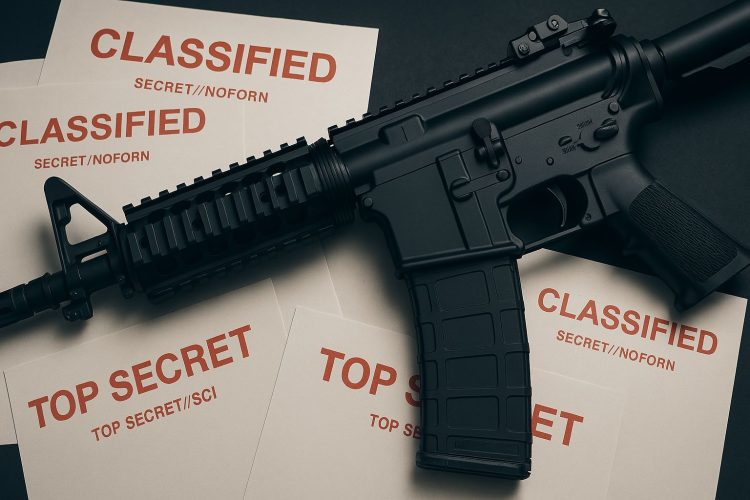Information is a weapon. From the first time I fired a .22 rifle at camp the summer after second grade to my first read-in and access to classified information and then to advanced weapons training and combat deployments with various Naval Special Operations Forces (NAVSOF) elements, there was never a doubt that I was being entrusted with weapons that, when used improperly or negligently, could severely wound or kill the innocent. Like handling an M4 Special Operations Peculiar Modification (SOPMOD), access to classified information represents an understanding of the responsibilities that come with being entrusted with a weapon and the concept of personal accountability.
I held a Top Secret/Special Compartmented Information (TS/SCI) security clearance for more than 26 years. My time at the National Security Agency (NSA), Naval Special Warfare (NAVSPECWAR) units, and other programs also required Special Access Program (SAP) briefs and acknowledgments. Some programs required counter-intelligence or full-scope polygraphs. Along with this restricted access came yearly refresher training and the acknowledgment of what classified information consisted of, how to identify it, and the proper storage and handling of this information, regardless of rank.
This reminds me of the whole Hillary Clinton debacle a few years back when she kept classified documents on a private email server during her tenure as Secretary of State. Why would she be held to a lower standard than an E-3 in military service?
While there may be a legal technicality regarding the private Clinton email server, there is no excuse, legal or moral, for not possessing and demonstrating the most important quality that comes with these privileges and responsibilities: sound judgment.
Judgment is the major quality that separates the special warfare/SPECOPs operators from conventional forces. Simply knowing when not to shoot is as important as knowing when to fire. In this capacity, not recognizing sensitive information, regardless of header markings or a staff member’s role, provides no cover for Mrs. Clinton’s disregard for and complete lack of judgment.
All personnel who have access to highly classified material are taught to recognize and identify improperly marked items.
An emphasis is placed on the concept, “If in doubt, don’t send it out.” Special security officers and field security officers perform their functions with diligence and are readily available to offer their expert services. When service members demonstrate a lack of judgment (even to a much lesser extent than Hillary), they lose their clearance status and face significant punitive measures, including prison time.
The national news agencies had focused the email/classified information scandal on legal issues. We, as veterans, active duty members, and most of all, U.S. citizens, must focus on the issue of judgment. Judgment is defined by the Oxford Dictionary as “the ability to make considered decisions or come to sensible conclusions.” Poor judgment by those who handle and release classified (especially TS/SCI) documents jeopardizes lives, risks the loss of human- and technology-driven intelligence sources, and makes vulnerable special operations and operators who protect our freedoms.
Those individuals, like Mrs. Clinton, must lose their access and, as a result, forfeit their privilege to serve in positions requiring security clearances.
Looking back, Mrs. Clinton should have been disqualified from pursuing the highest office in the land for failing to exercise sound judgment.
Fortunately, the American people chose against her in the election that year.
Already have an account? Sign In
Two ways to continue to read this article.
Subscribe
$1.99
every 4 weeks
- Unlimited access to all articles
- Support independent journalism
- Ad-free reading experience
Subscribe Now
Recurring Monthly. Cancel Anytime.


COMMENTS